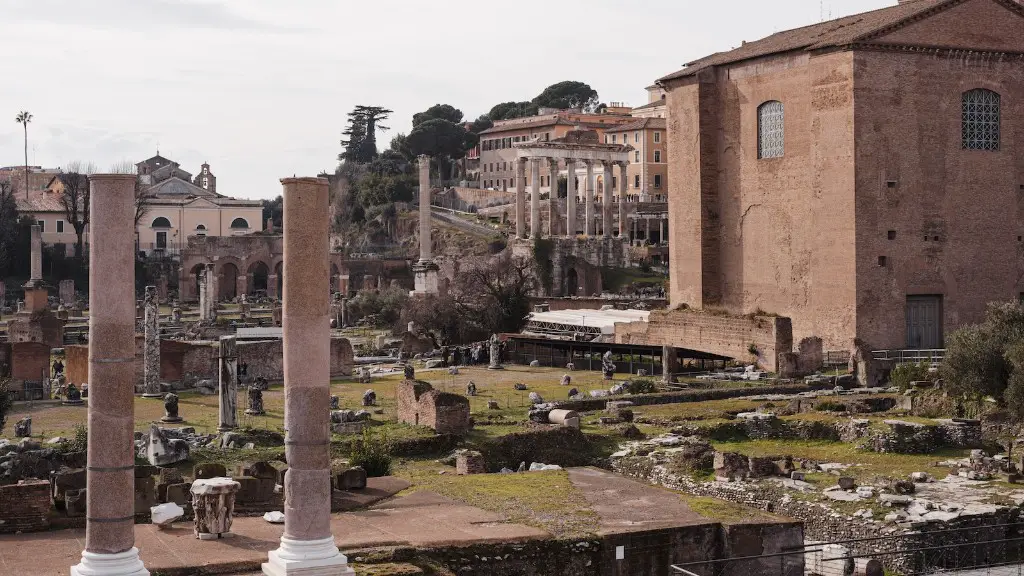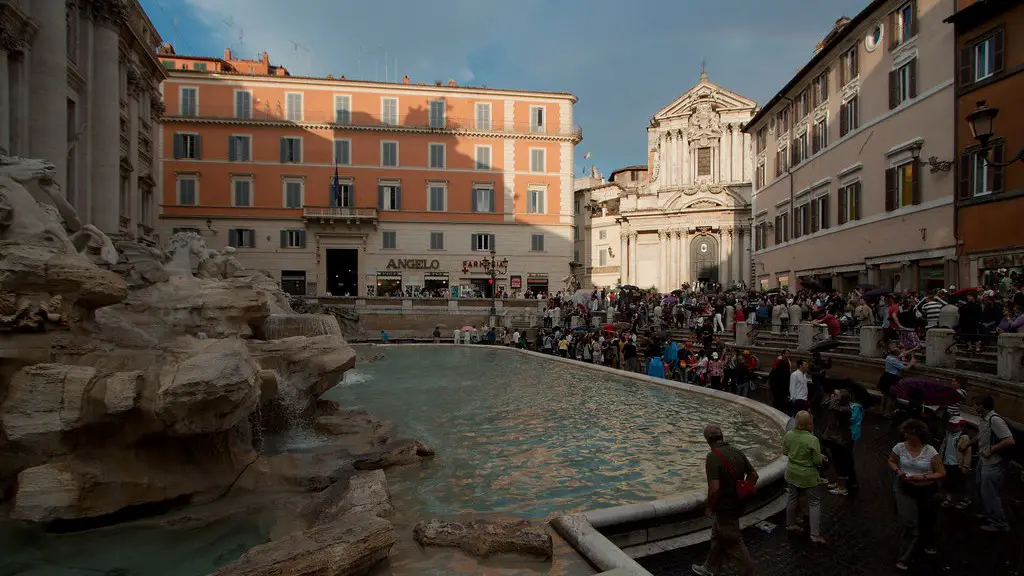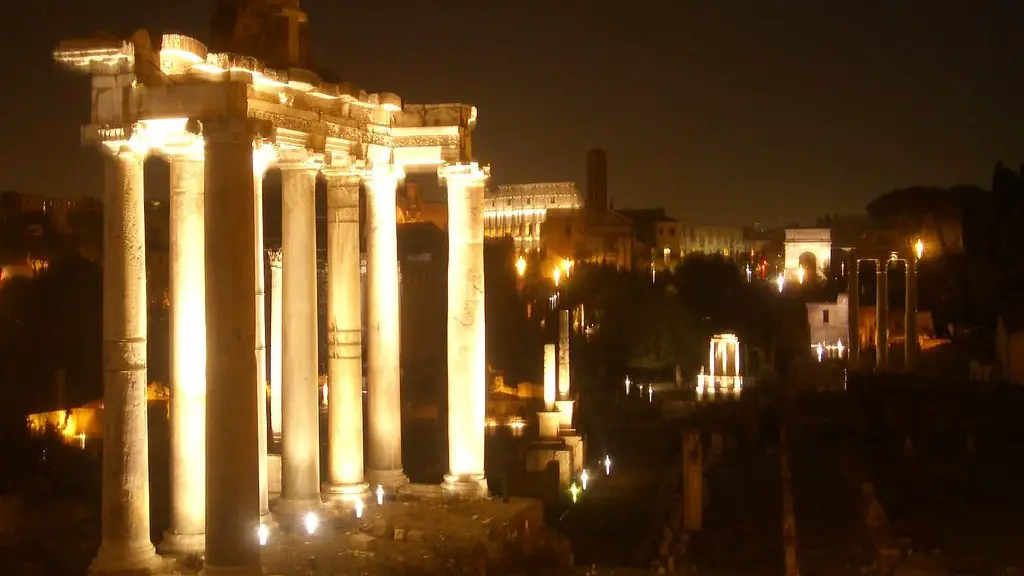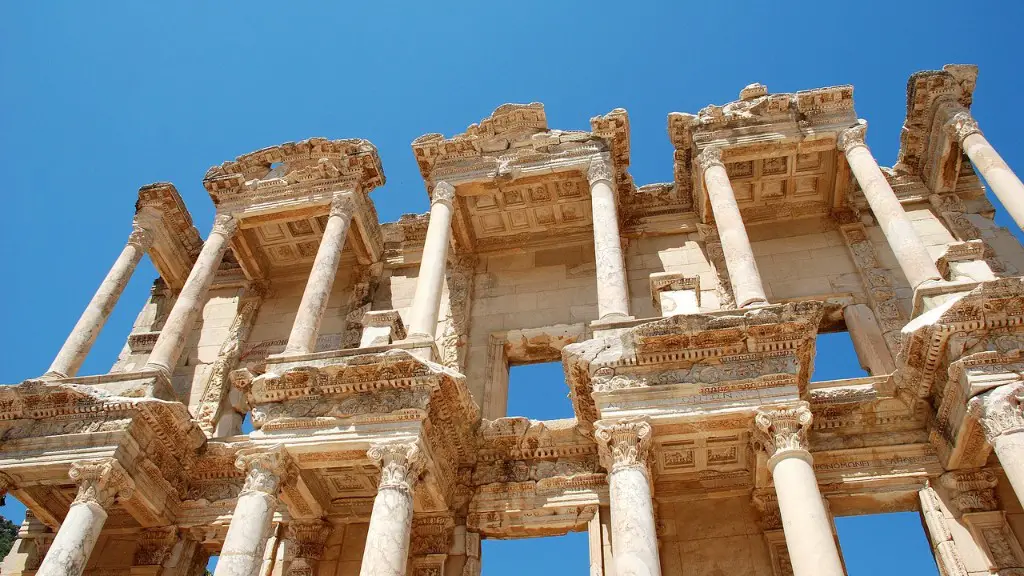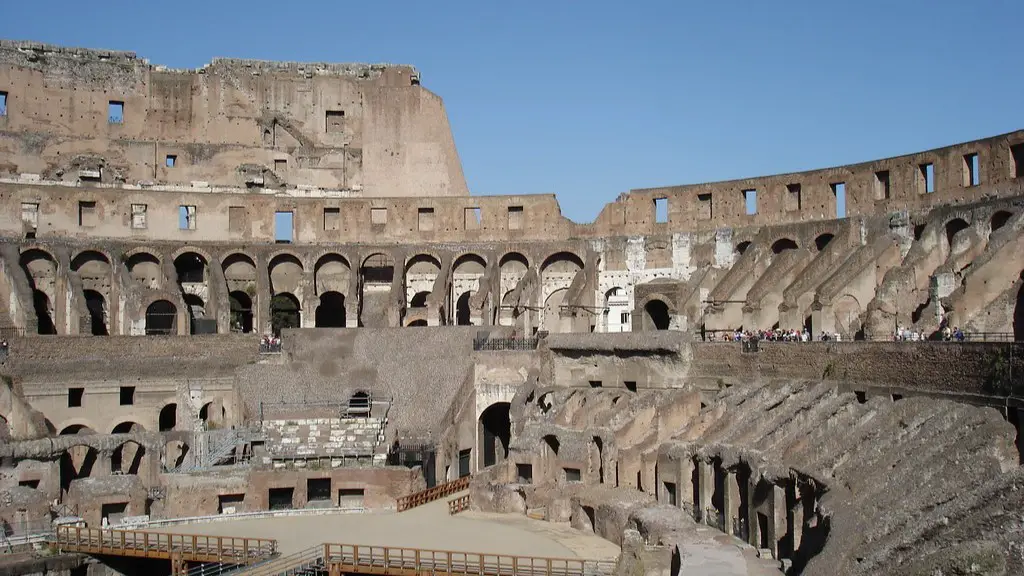Christianity is an ancient religion that emanated from the Jewish faith and emerged as an officially recognised religion in the Roman Empire in the 4th century. The religion found inroads in the Roman Empire, which can be traced to the period of legalisation. When Christianity was fully embraced and legally recognised by Rome, it spread rapidly and profoundly changed the course of human history.
Prior to the official legalisation of Christianity, it was still very much alive, however it was seen as an illegal religion due to the fact that it clashed with the religious and political ideals of the Roman Empire. Christianity was largely practiced in underground communities, and the earliest Christians were arrested and martyred for their beliefs. It was not seen as an acceptable religion to the Roman authorities until 313 CE when the Edict of Milan granted official legal status.
During the Edict of Milan, Emperor Constantine I, promised freedom of religion to all inhabitants of the Roman Empire. This was a huge step for Christianity, as it set the stage for the greater acceptance of the religion. By 350 CE, Christianity was given official status as the official state religion in the Roman Empire.
In 380 CE, Christianity was granted additional protection under the Edict of Thessalonica, which declared it to be the only legitimate God-inspired religion in the Roman Empire. This edict declared Christianity to be “the only true religion”, and decreed that all other religions must be “abandoned.”
For the next several centuries, Christianity was the main religion practiced in Rome. At the same time, pagan religions, such as Roman mythology and Egyptian worship, were still practiced, albeit in a much less prominent fashion. Roman Christians were to keep their faith while also honoring the Roman gods, who still had a strong influence over the people.
By the end of the 4th century, Christianity was the predominant religion of Rome and its rise had profound effects on the development of the Roman Empire. Christianity brought a period of stability to the Roman Empire and united its many regions. The religion also gave rise to some of the earliest European monasticism, centralized power, and helped shape the course of Western literature, philosophy, and art.
The Effects of Christianisation
Christianisation had far reaching effects on ancient Rome. It caused a transformation of the Roman economy, society and its politics. Unlike paganism, Christianity demanded absolute obedience to the teachings of the church which struck a chord with the Roman people. They had been yearning for an answer to overcome the chaos of their lives and found this in Christianity. Christianity also helped curb many societal ills such as infanticide and war. As people began to adopt its teachings, Roman society became more orderly and peaceable.
The effects of Christianisation also extended to the economy. Christianity began to influence the economy of the times, as it placed an emphasis on thrift and restrained spending. Wealth was no longer to be used in acquiring vain material luxuries, but rather in charity and helping out one’s fellow man. This helped get people out of economic debt and destitution.
In terms of politics, Christianity had immense implications as it placed a spiritual authority above the emperor. This meant that the emperor no longer had absolute power but was accountable to the church, and this caused a shift in the way the government operated. This transformation in politics had lasting effects for centuries to come, as it helped create a foundation for democracy and a more decentralized system of government.
The Legacy of Christianisation
Christianisation had a lasting effect on the Roman Empire and left a powerful legacy. The religion was embraced not only by the emperor, but by the rest of the population of the Empire. This united the region and provided a sense of purpose and belonging to its citizens. As a result, Christianity was an essential factor in the unification and survival of the Roman Empire and in the foundation of European civilization.
The legalisation of Christianity resulted in major changes in literature, art, and philosophy. Christianity placed a major emphasis on education and literacy, which led to an increase in the production of documents and books. This increase in literature had major implications for the development of philosophy, science and the arts. Christianity provided a moral foundation for the development of a just society as well as a set of principles that were paramount in the development of European culture.
The Impact of Christianity
The impact of Christianity was profound and wide reaching. It was a major factor in the formation of new political systems, in the advancement of literature and art, and the development of social order. It provided a moral compass which was deemed essential in the development of European civilization and culture.
The legalisation of Christianity in Ancient Rome created a set of conditions that allowed the religion to expand and prosper in other regions as well. It spread rapidly to the Middle East, Asia, and various settlements in Europe. Throughout the centuries, Christian teachings and values have shaped the world and guided its citizens. From the emergence of democracy to advances in science and technology, the impact of Christianity can be seen in almost every aspect of modern day life.
Challenges of Christianisation
Christianisation was not without its problems. As the religion spread, so did its strict views on social order and behaviour. The adoption of Christian teachings sometimes clashed with local religious and cultural practises and this often led to heated debates and disputes. This caused a lot of tension and conflict, especially in areas where traditional beliefs clashed with Christian principles.
For the most part, however, Christianisation brought positive changes to the Roman Empire. The influx of new ideas and beliefs helped transform the region into a more unified and structured society. The laws and regulations imposed upon its citizens created a much more orderly society and helped get people out of economic destitution. The rise of Christianity in Rome also helped lay the foundations for the development of European culture and philosophical thought, creating a legacy that has lasted to this day.
The Spread of Christianity Beyond Rome
After the official legalisation of Christianity in the Roman Empire, the religion continued to spread and grow in other regions of the world. Christianity was adopted rapidly in Greek settlements, particularly in the north, where it replaced the previously dominant paganism. In the East, the religion spread rapidly, particularly in the 4th century when it was adopted as the official religion of Armenia.
Christianity was also embraced in other regions of the world, such as North Africa, the Balkans and Britain. In the 9th century, it was adopted as the official religion of Bulgaria and in the 10th century, it was adopted by the Kievan Rus’. As the religion spread, so too did its influence, as it created a powerful unifying force that helped to shape the identities and beliefs of many nations.
The legalisation of Christianity in Ancient Rome was a monumental event that had profound effects for centuries to come. Its official status allowed the religion to spread and gain adherents in multiple regions of the world. The legacy of Christianity is still felt today, as its principles and values continue to shape the thoughts and actions of individuals and nations alike.
The Influence of Monasticism
The early adoption of Christian in Rome was closely connected to the emergence of monasticism. Monasteries were established to propagate the teachings of the church, and to provide an example of Christian life to the general public. Monasteries provided a place for priests and bishops to meditate, pray, write and study. This form of piety and renunciation of worldly life struck a chord with many who desired to have a closer relationship with God. Monasteries became a refuge for those who sought spiritual guidance and a safe haven to live a life devoted to the teachings of Christianity.
Monasteries had a profound effect on Western civilisation, as they served to preserve and promote Christian teachings. Monasteries were hubs of learning and research, where priests and theologians studied and wrote on the principles of faith, scripture and liturgy. Their practical contributions in the fields of agricultural and livestock also helped to feed the growing population of rural communities and provided a stable structure for society.
The influence of monasticism on society was immense, and its effects are still felt today. Its strict adherence to the beliefs and values of Christianity served to reinforce the moral foundation on which Western civilisation was built. Its conception of a pious and heavenly life, as well as its dedication to the study of scripture and philosophy, created a platform for the development of modern philosophical and spiritual thought.
Christianity in Modern Times
Today, Christianity remains a powerful force in the modern world and its influence has grown significantly over the centuries. Christianity is the largest world faith, with over two billion followers, and is the world’s most practiced religion. Even in regions where Christianity is not the dominant faith, it has still had a major effect on societal structure, culture, and morals.
The legalisation of Christianity in Ancient Rome provided the platform for its global spread, and enabled it to become the main religion of the Mediterranean. This allowed its teachings to be taken to various regions and cultures, and enabled the development of Christian culture and civilisation. Christianity has helped shape the moral and ethical basis on which Western society is built, and continues to have a major influence on society and culture across the world.
